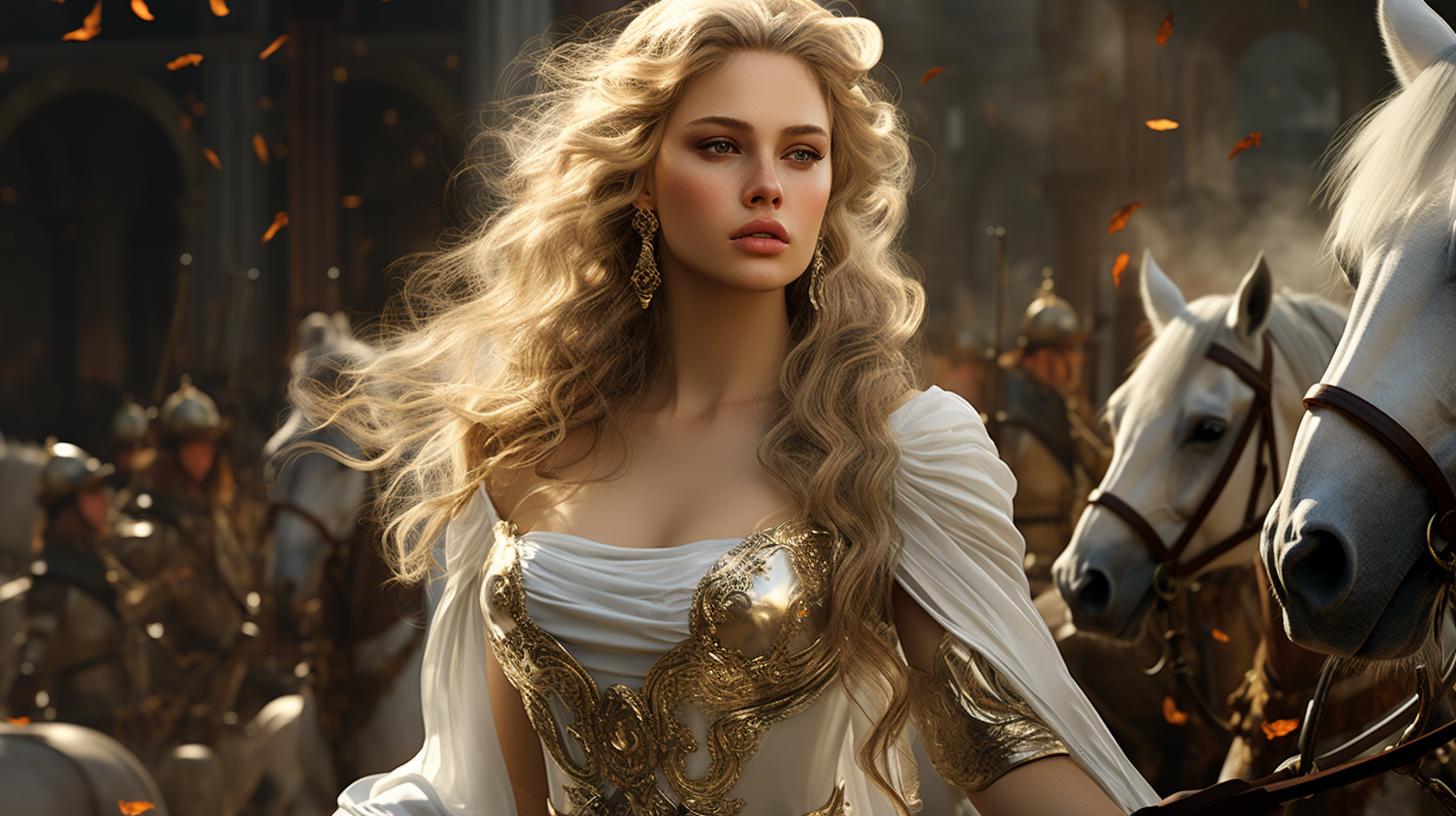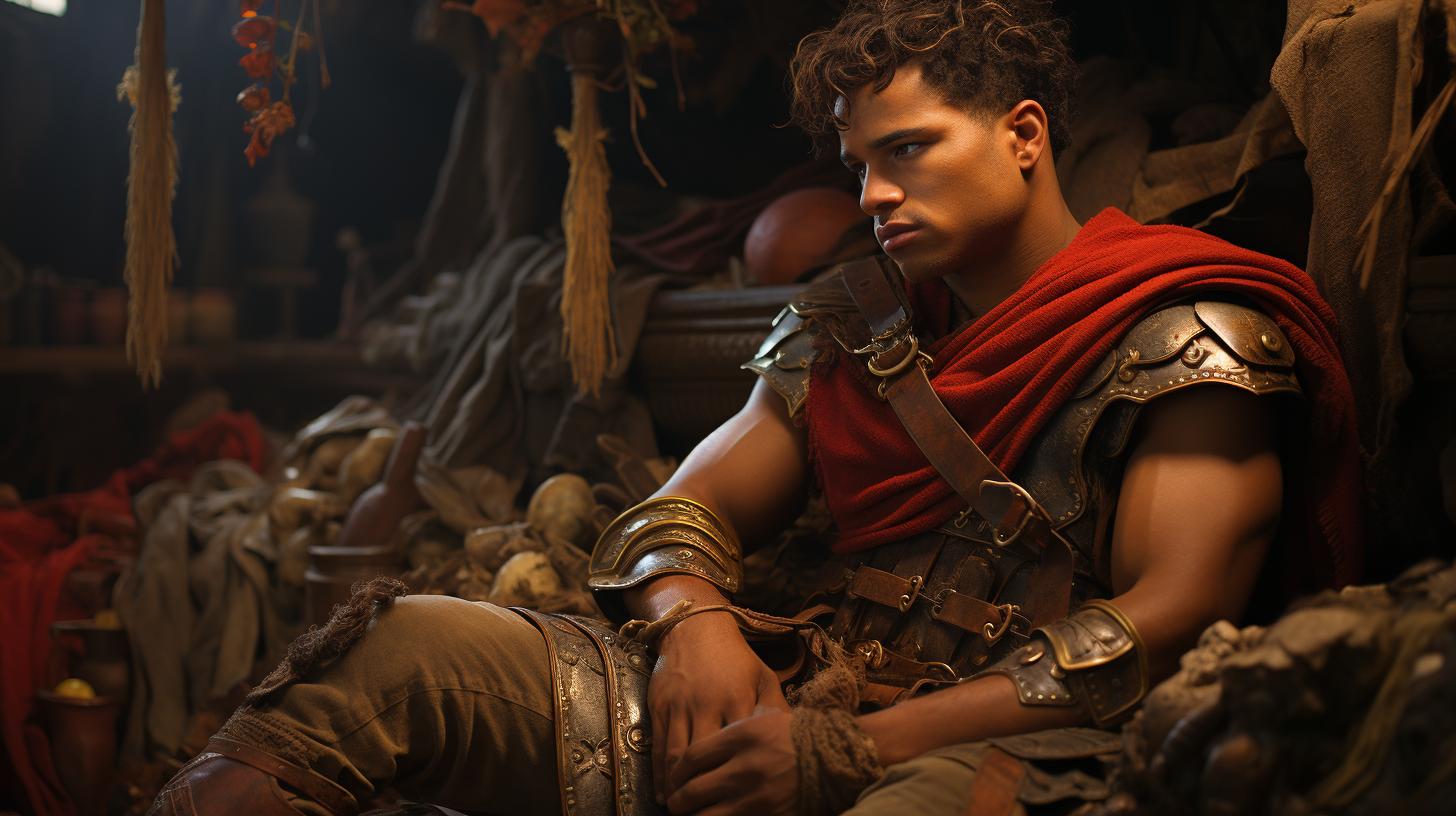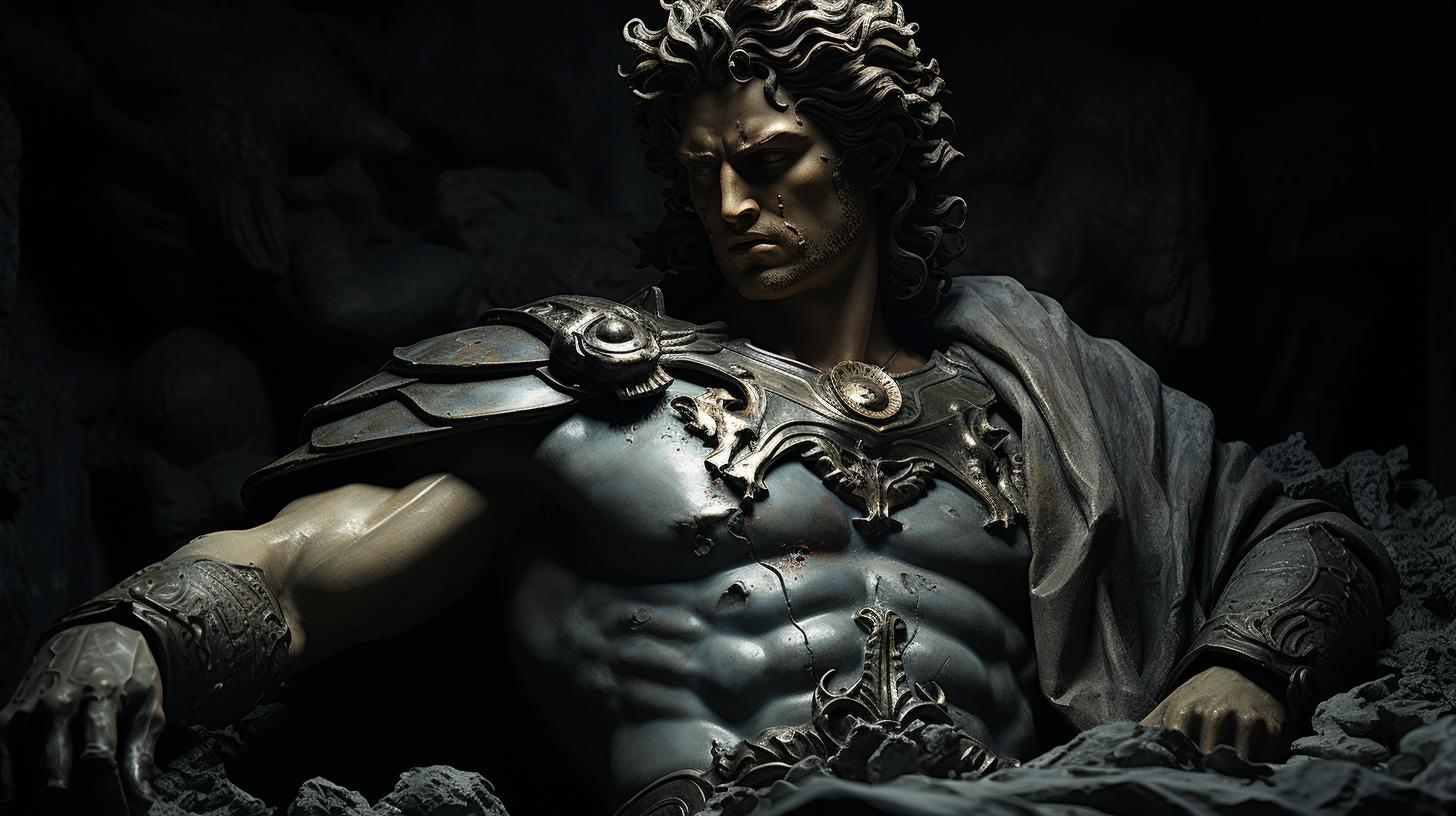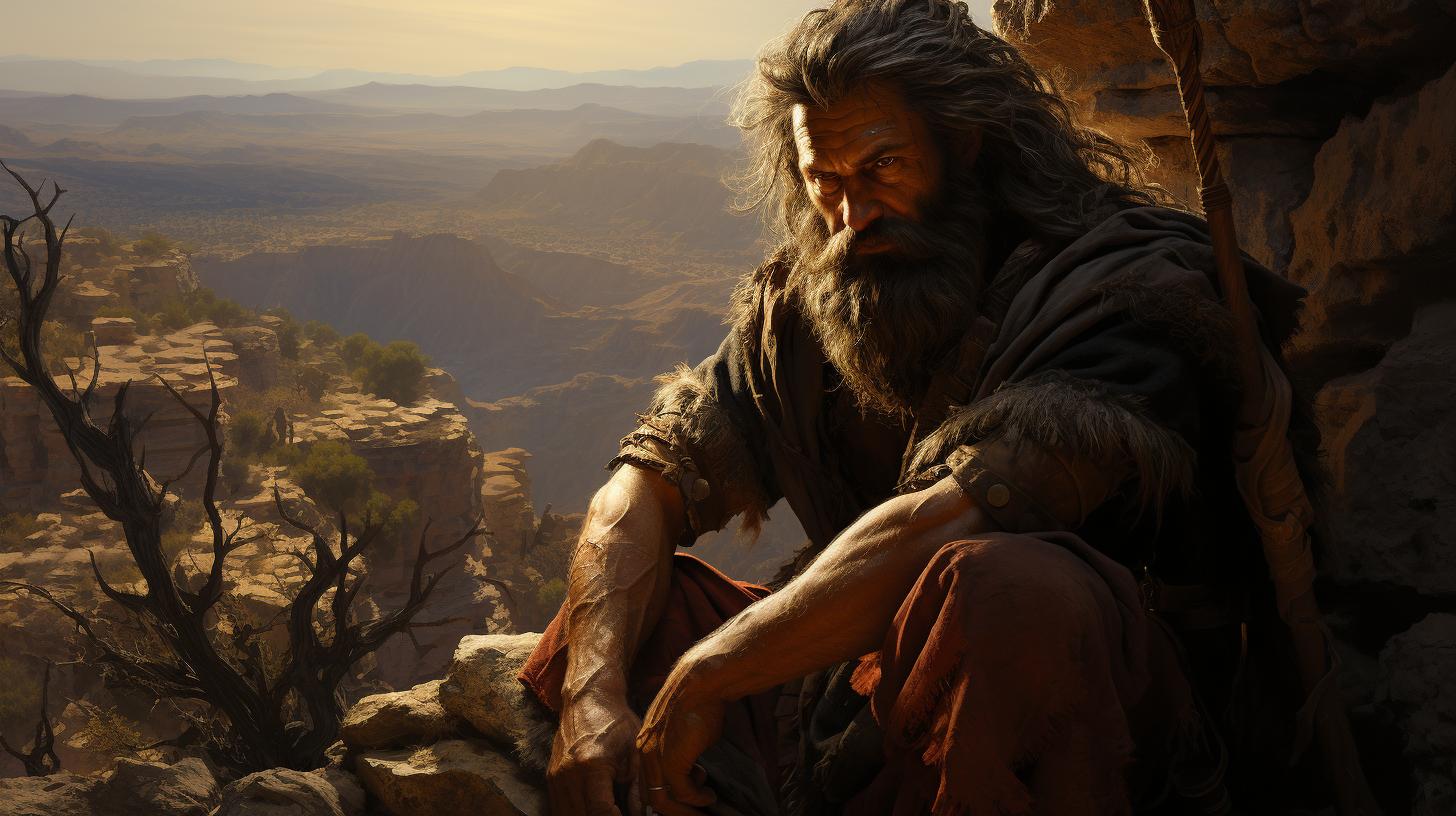Greek Mythology Hippolyta: The Fierce Queen of the Amazonians
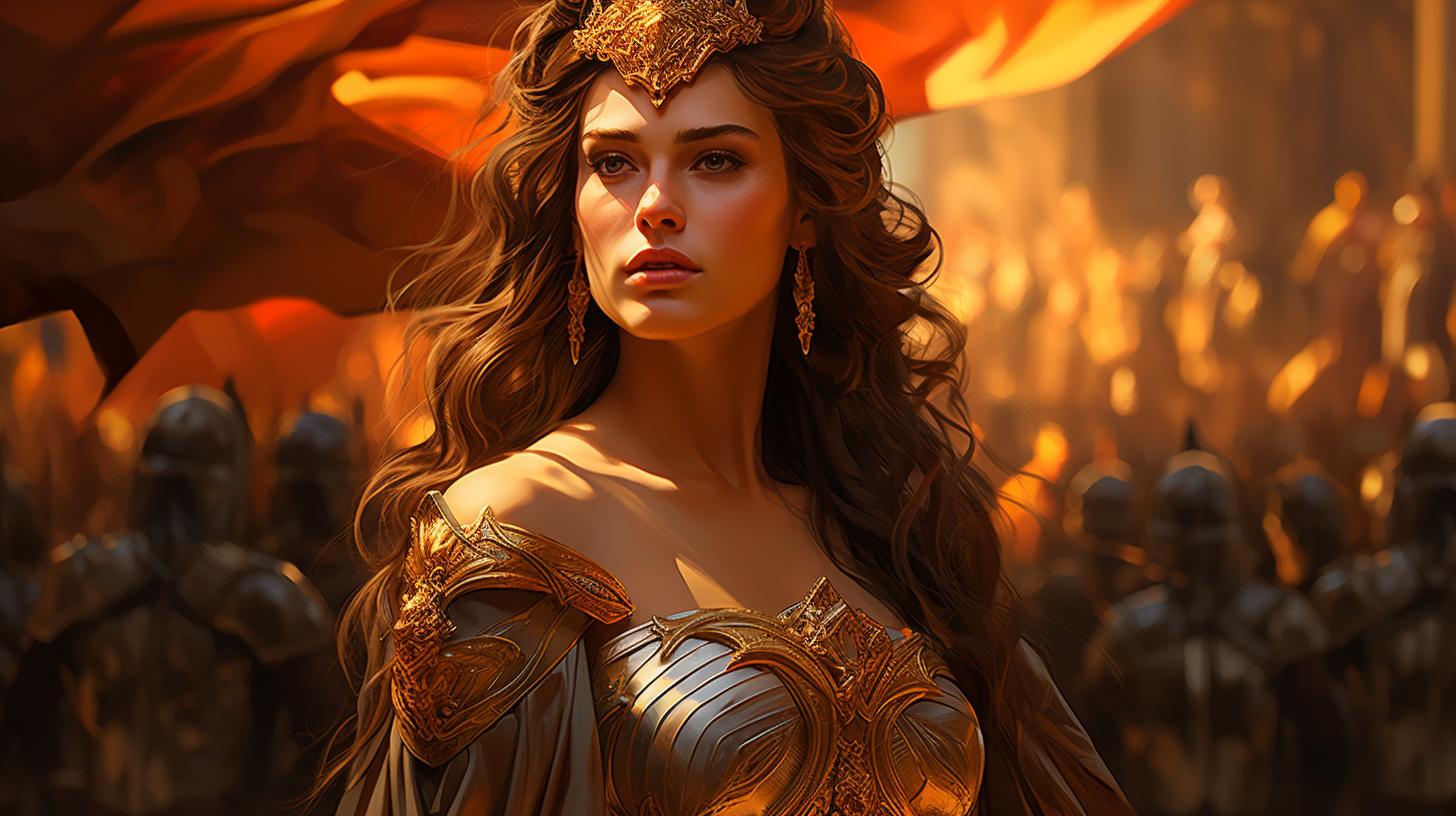
Greek mythology Hippolyta was the formidable queen of the Amazons. Descended from Ares, she ruled over a society of fierce warrior women known for their independence and skills in combat.
Various myths depict Hippolyta in different roles, including encounters with Hercules and Theseus. Her story has been widely represented in art and literature, symbolizing female leadership and empowerment. This article explores the origins, different versions, and cultural significance of Hippolyta’s myth, shedding light on her enduring legacy in ancient Greek society.
The Legend of Hippolyta in Greek Mythology
The legend of Hippolyta in Greek mythology encompasses fascinating aspects of ancient Greek culture and storytelling. This legendary queen of the Amazons, renowned for her strength and leadership, has captivated the imaginations of people for centuries.
In this section, we will explore the origins and lineage of Hippolyta, as well as delve into the society and culture of the Amazonians.
Origins and Lineage of Hippolyta
Hippolyta, also known as Hippolyte, was the daughter of Ares and Otrera, who was herself a queen of the Amazonians. According to myth, the Amazonians were a nation of fierce warrior women residing in the city of Themiscyra, located near the Black Sea.
An intriguing element of Hippolyta’s heritage is her father’s gift, a magnificent belt symbolizing her authority as queen of the Amazons. This belt serves as a testament to her power and influence within the Amazonian society.
The Amazonian Society and Culture
The Amazonians were a remarkable tribe of warrior women known for their independence, unique customs, and remarkable skills. They were believed to be descended from the union of Ares, the god of war, and the nymph Harmonia.
The relationship between the Amazonians and the male tribe of Gargareans varied across different sources.
Some portray them as adversaries, while others describe an annual meeting between the tribes for procreation purposes.
Within the Amazonian society, it was believed that if a warrior gave birth to a daughter, she would be raised and trained in the ways of the Amazonian culture.
However, if a son was born, he would be either killed or mutilated. Furthermore, there is a belief that Amazonian women would remove their right breast to enhance their archery skills while still preserving their left breast for nurturing their children.
The term “amazon” is thought to derive from the Greek word “amazos,” meaning “without breast.” Nevertheless, there’s ongoing debate among scholars regarding its exact origin.
Hippolyta was not the only significant queen among the Amazonians.
Others, such as Otrera, the first queen and mother of Hippolyta, Pentesilea, who led the Amazonians to aid the Trojans in the Trojan War, and Myrina, who led campaigns in Libya and Egypt, all made their mark in ancient Greek mythology.
The last known queen was Thalestris, who led 300 Amazonians to meet Alexander the Great, hoping to conceive a daughter with his military prowess and brilliance.
In the following sections, we will explore different versions of the Hippolyta myth, her portrayal in art and literature, as well as the symbolism and themes associated with her story.
Different Versions of the Hippolyta Myth
The myth of Hippolyta, the queen of the Amazons, has been depicted in various versions throughout Greek mythology. These different narratives present distinct perspectives on Hippolyta’s interactions with notable Greek heroes.
Hippolyta in the Myth of Hercules’ Ninth Labor
In the myth of Hercules’ Nine Labors, Hippolyta plays a crucial role. As part of his tasks, Hercules is tasked with retrieving the belt of Ares, which is desired by the daughter of King Eurystheus.
Hercules arrives in Themiscyra, the city of the Amazons, and meets with Hippolyta, explaining his missions and Hera’s jealousy. Convinced by Hercules’ noble intentions, Hippolyta agrees to give him the belt.
However, Hera, disguised as an Amazon, spreads rumors among the warrior women, leading them to believe that Hercules intends to kidnap Hippolyta. The Amazons, alarmed by this purported betrayal, mount their horses and arm themselves, intending to rescue their queen.
Misinterpreting their actions, Hercules mistakenly kills Hippolyta and takes the belt. He then clashes with the infuriated Amazons before sailing away.
Hippolyta’s Role in the Myth of Theseus
Another version of the Hippolyta myth involves her connection to Theseus, the Athenian hero.
In this rendering, Theseus either kidnaps Hippolyta’s sister Antiope, or the two fall in love, prompting Antiope to willingly leave the Amazon tribe to live with Theseus in Athens.
Some versions even name Hippolyta herself as Theseus’ wife. However, ultimately, Theseus abandons his Amazonian wife to marry Phaedra.
During this period, the Amazons launch an attack on Athens in what is known as the Athenian War.
The reasons behind this invasion vary in different accounts, with some suggesting it was in retaliation for the abduction of one of their own.
Other Significant Queens of the Amazonians
- Pentesilea: Leading the Amazonians to aid the Trojans in the Trojan War.
- Myrina: Commanding the Amazons in campaigns in Libya and Egypt.
- Thalestris: As depicted in the myth, she led 300 Amazonian warriors to meet Alexander the Great, hoping to bear a daughter with his military strength and brilliance.
Representation of Hippolyta in Art and Literature
Portrayals of Hippolyta as a Powerful Female Leader
Hippolyta, the legendary queen of the Amazons, has long been depicted as a symbol of female power and leadership in art and literature.
Artists and writers throughout history have captured her strength, courage, and independence, showcasing her as a formidable ruler of a society of warrior women.
In paintings and sculptures, Hippolyta is often portrayed wearing her magnificent belt, a symbol of her authority and status as the queen of the Amazons. She is depicted as a regal figure, exuding confidence and command.
Her powerful presence and fierce demeanor serve as inspiration for countless representations of female strength.
Literary works also abound with depictions of Hippolyta as a strong and influential leader. From epic poems and plays to contemporary novels and comics, authors have highlighted her strategic prowess, martial skills, and unwavering determination.
Hippolyta becomes a role model for women, embodying resilience, independence, and the ability to challenge societal norms.
Influence of Hippolyta’s Story in Popular Culture
Hippolyta’s story has had a significant impact on popular culture, inspiring numerous adaptations, reinterpretations, and references in various forms of media. From movies and TV shows to video games and graphic novels, her character continues to captivate audiences and ignite their imagination.
Contemporary adaptations often emphasize Hippolyta’s role as a feminist icon, highlighting her as a symbol of female empowerment and challenging gender stereotypes. Her story provides a platform for exploring themes of equality, strength, and the fight against injustice.
Moreover, Hippolyta’s portrayal in popular culture serves as a representation of diverse and inclusive storytelling. Her character’s enduring popularity showcases the demand for strong, multidimensional female characters and the recognition of the importance of their narratives.
- The portrayal of Hippolyta in films like “Wonder Woman” showcases her as a charismatic leader guiding her Amazonian warriors.
- In comic books, Hippolyta often appears as a mentor to other female heroes, imparting her wisdom and experience.
- Video games featuring Hippolyta allow players to embody her strength and engage in epic battles.
- Hippolyta’s influence can even be seen in fashion and cosplay, with people celebrating her character through costumes and themed events.
Hippolyta’s presence in popular culture reinforces her status as a legendary figure, immortalized through various artistic mediums, and inspiring generations with her empowering story.
Symbolism and Themes in the Story of Hippolyta
Themes of Female Empowerment and Independence
In the mythological story of Hippolyta, the themes of female empowerment and independence play a significant role. As the queen of the Amazons, Hippolyta represents the strength and resilience of women in ancient Greek society.
The Amazonian society, known for its fierce warrior women, challenges traditional gender roles and highlights the capabilities of women in combat, hunting, and leadership.
The story of Hippolyta emphasizes the importance of female autonomy and the ability to forge one’s path.
It showcases a society where women are not dependent on men and are capable of governing themselves. Hippolyta’s role as a powerful queen reflects the idea of a matriarchal society, where women hold positions of authority and influence.
Symbolism of Hippolyta’s Magnificent Belt
Hippolyta’s magnificent belt, gifted to her by her father Ares, symbolizes her authority and power as the queen of the Amazons. It serves as a representation of her leadership within her society and acts as a physical manifestation of her role.
The belt holds both literal and figurative significance in the story. On a practical level, it may have symbolized Hippolyta’s status as a skilled warrior, as it is suggested that the Amazons were known for their expertise in combat.
The belt also carries symbolic weight, representing the strength and determination of Hippolyta and the Amazonian women.
Furthermore, the belt serves as a token of power and control. Its significance is highlighted when Hercules is requested to retrieve it during his ninth labor.
This task emphasizes the importance placed on the belt and further reinforces its symbolism within the narrative.
In conclusion, symbolism and themes within the story of Hippolyta illustrate the ideals of female empowerment and independence.
The portrayal of Hippolyta as a powerful queen and the symbolism of her magnificent belt showcase the strength and capabilities of women in ancient Greek mythology. This narrative challenges traditional gender roles and highlights the importance of female autonomy and leadership.
The story of Hippolyta continues to resonate, inspiring discussions on gender dynamics and the representation of powerful women in various forms of art, literature, and popular culture.
(Please note that the formatting of the text might not be accurately represented here, but it can be copied and used accordingly in an HTML format.)
Frequently Asked Questions About Hippolyta in Greek Mythology
Explore the answers to common questions about Hippolyta, the fierce queen of the Amazonians, in Greek mythology.
Who were the Amazonians and their relation to Hippolyta?
The Amazonians were a legendary society of warrior women known for their independence and strength. They were said to be descendants of Ares and Harmonia, and they lived in the region of the Black Sea.
Hippolyta was the queen of the Amazonians, ruling over them with authority. She was the daughter of Ares and Otrera, who was also a queen of the Amazonians.
What was Hippolyta’s fate in different versions of the myth?
Hippolyta’s fate varies in different versions of the myth.
In one version, she meets her end at the hands of Hercules during his ninth labor, where he is tasked with stealing her magnificent belt. In other versions, her role in the myth of Theseus is assigned to one of her sisters, Antiope or Melanippe.
The details of her fate differ depending on the interpretation of the myth.
How did Hippolyta’s story impact ancient Greek society?
Hippolyta’s story served as a symbol of female empowerment and independence in ancient Greek society. As the queen of the Amazonians, she embodied strength and leadership, challenging traditional gender roles. Her story resonated with individuals, inspiring the portrayal of powerful female characters in art, literature, and mythology.
Hippolyta’s myth contributed to the ongoing dialogue about gender dynamics and the role of women in ancient Greek culture.
.











